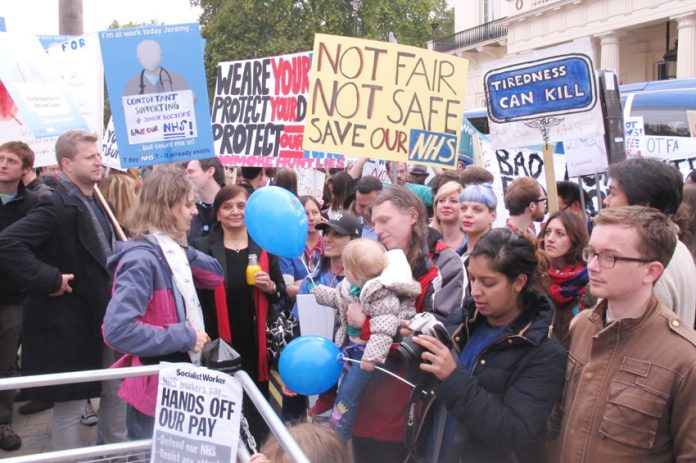A SPECIAL GPs conference in just a few weeks called by the BMA GPs Committee (GPC) is set to hear unprecedented calls for industrial action.
The BMA announced on 4th December: ‘The GPC called for a special conference at its recent meeting, to take place on 30 January 2016, to address the fact that general practice is at a critical juncture, with unsustainable workload pressures that are preventing GPs from delivering adequate and quality care to patients.’
The conference comes as some members of the GPC are proposing the executive team walk out of negotiations over the new GP contract because of little progress. Many are concerned that the government is planning to impose paying practices for providing seven-day access as part of networks, something the GPC has insisted it will not let happen.
Negotiations for a new GP contract are ongoing and the success of the junior doctors who forced health secretary Hunt to return to the negotiating table rather than carry out his threat of imposition has inspired angry GPs.
Shropshire LMC, alongside several others, has proposed a motion that if the government does not urgently implement measures to relieve the ‘intolerable pressures’ on practices, ‘the GPC explores realistic options for industrial action’.
Stressing the GP recruitment crisis, Shropshire LMC medical secretary Dr Ian Rummens, said: ‘We believe that, unless GPs are prepared to take action, the government will do nothing until it is too late.’ Derbyshire Local Medical Committee (LMC) has submitted a motion giving the government a ‘time-limited opportunity’ to engage in sensible discussions and implement emergency measures, or face the threat of industrial action.
Former GPC negotiator Dr Peter Holden said: ‘This is the nuclear option. We have to give the government a time-limited opportunity. When it refuses to engage in sensible discussions and refuses to implement the emergency measures that are needed, then we can consider industrial action.’
Other motions include, from Essex LMCs: ‘That conference believes there will be no solution to the crisis facing general practice until practices are given the necessary tools and support to work only within their safe workload limits and NHS England commits to reducing local micro-management and unnecessary bureaucracy.’
